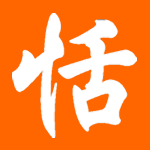Jon says:
One of these mutant fighters was sporting some Chinese tat, that, upon further inspection, was actually Japanese. I think it's trying to say, "I'll win in spite of yesterday?" or something like that.
Plus, making "I" two characters wide on the top makes it confusing at first glance to figure out if it should be read top-down or left-to-right. Anyway, not sure your final verdict on this but it's totally suspect.
HS senior resident pro-bono Japanese consultant Alan Siegrist concludes that:
The order of characters is strange, and I guess someone has left out a few words or characters. The grammar is also wrong because they are using the future tense for something that happened in the past.
This is very weird.
Anyway, I guess the intended order is: 我は昨日のに勝つ.
This would mean roughly something like "I will win yesterday's ___."
I guess the word in the blank is supposed to be "match" or something, since these guys are some sort of MMA fighter guys.
Maybe he didn't have enough money to let the tattooist finish the tattoo or maybe he weenied out at the last minute. Maybe he couldn't stand the pain.


Maybe we need to read 我 two times.
ReplyDelete我は昨日の我に勝つ.
He is growing up day by day.
I think I've got it. The reason 我 is two characters wide at top is because it's supposed to be read twice, heading each of two sentence halves. Like this:
ReplyDelete我 は昨日の 我 に勝つ
So that's "I'll defeat the me of yesterday".
That even makes sense as a mantra – you know, that kind of "the competition is in beating one's self" kind of stuff.
But it sure is a clumsy way to write it; I had to wrestle with it!
Love this blog, by the way, and never miss a post. More, more, please!
guy and anonymous:
ReplyDeleteYou guys are brilliant! That must be it.
Now I see. There really is a saying that goes:
今日の我は、昨日の我に勝つ
It evidently is a slogan from some sort of Edo-era martial arts school. So it means "The me of today will defeat the me of yesterday."
But this guy's tattoo has left off the 今日の bit and forced us to read the 我 twice.
-Alan
I tend to concur with "guy with japan-related blog", but note that "[verb phrase]のに" means "despite/although [verb phrase]". In this interpretation, we have a tattoo artist who didn't get the construction right.
ReplyDelete(http://www.csse.monash.edu.au/~jwb/j_gram_summ.html)